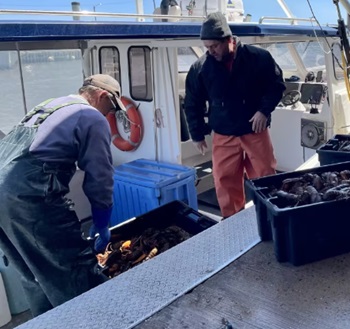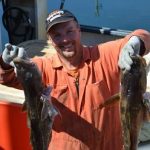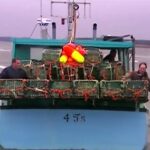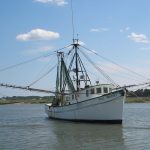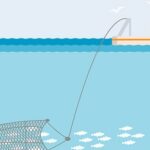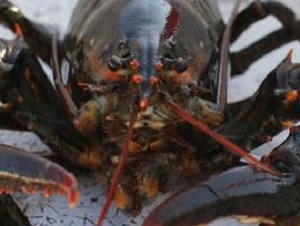Category Archives: Canada
Inuit inshore harvesters of northern Labrador have scheduled a protest for Tuesday morning, May 28th, at 8 a.m.
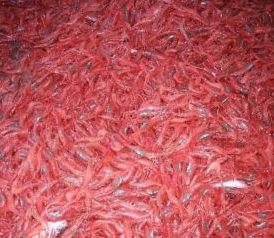 Inuit inshore harvesters of northern Labrador have scheduled a protest for Tuesday morning, May 28th, at 8 a.m. (8:30 a.m. in Newfoundland) outside all Nunatsiavut Government buildings in the province. “We encourage all Inuit harvesters, their families, and non-harvesters alike to support us against this grave injustice,” says organizer and Inuit harvester Lisa Blandford. In past years the Nunatsiavut government has distributed its annual federal allocation of shrimp off northern Labrador to more than 20 inshore harvesters or designates. This year, however, seven Inuit harvesters say the Nunatsiavut government has denied them a 2024 share of northern shrimp quota in favour of an Inuit designate with a factory-freezer trawler, displacing as many as 40 inshore harvesters along the north Labrador coast. The inshore harvesters have also raised questions of conflict of interest involving current and past members of the Nunatsiavut government and have DFO documentation from 2003 that dictates shrimp quota to be assigned specifically to the inshore. DFO is expected to open the shrimp fishery off northern Labrador in fishing zones 4 and 5 any day. Contact Lisa Blandford: 709 897 7531 – 13:20
Inuit inshore harvesters of northern Labrador have scheduled a protest for Tuesday morning, May 28th, at 8 a.m. (8:30 a.m. in Newfoundland) outside all Nunatsiavut Government buildings in the province. “We encourage all Inuit harvesters, their families, and non-harvesters alike to support us against this grave injustice,” says organizer and Inuit harvester Lisa Blandford. In past years the Nunatsiavut government has distributed its annual federal allocation of shrimp off northern Labrador to more than 20 inshore harvesters or designates. This year, however, seven Inuit harvesters say the Nunatsiavut government has denied them a 2024 share of northern shrimp quota in favour of an Inuit designate with a factory-freezer trawler, displacing as many as 40 inshore harvesters along the north Labrador coast. The inshore harvesters have also raised questions of conflict of interest involving current and past members of the Nunatsiavut government and have DFO documentation from 2003 that dictates shrimp quota to be assigned specifically to the inshore. DFO is expected to open the shrimp fishery off northern Labrador in fishing zones 4 and 5 any day. Contact Lisa Blandford: 709 897 7531 – 13:20
FFAW President Greg Pretty not seeking re-election, will retire
 Fish, Food and Allied Workers (FFAW) union president Greg Pretty is retiring after more than 40 years with Newfoundland and Labrador’s largest private sector union. Pretty presided over the fisheries’ union during a tumultuous term that included two contentious tie-ups in back-to-back snow crab seasons. When asked on Friday if he would do anything differently, Pretty said no. “We had to have tie-ups to move this agenda. It was contrary to regulations and legislation, but it had to be done and it paid off,” he said. “We’re in a much better situation right now in 12 short months. So no, I don’t have any regrets.” Video, more, >>CLICK TO READ<< 11:38
Fish, Food and Allied Workers (FFAW) union president Greg Pretty is retiring after more than 40 years with Newfoundland and Labrador’s largest private sector union. Pretty presided over the fisheries’ union during a tumultuous term that included two contentious tie-ups in back-to-back snow crab seasons. When asked on Friday if he would do anything differently, Pretty said no. “We had to have tie-ups to move this agenda. It was contrary to regulations and legislation, but it had to be done and it paid off,” he said. “We’re in a much better situation right now in 12 short months. So no, I don’t have any regrets.” Video, more, >>CLICK TO READ<< 11:38
Lobster dispute settled a day after fishermen defy order to remove traps
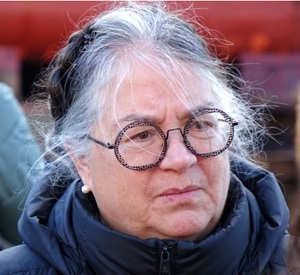 A brewing battle between the federal government and lobster fishermen in northern New Brunswick appears to have come to an end. A federal closure of lobster fishing zones in the Gulf of St. Lawrence off New Brunswick’s Acadian Peninsula was being defied by hundreds of fishermen refusing to remove their traps. A news release from the Department of Fisheries and Oceans sent Thursday evening says that lobster boats will be able to fish closer to shore. “I am pleased to see DFO has adjusted the closure requirements and harvesters can now set their traps up to the 10 fathom shallow water protocol management line for the remainder of the 15-day period,” said federal Fisheries and Oceans , in the release. more, >>CLICK TO READ<< 08:50
A brewing battle between the federal government and lobster fishermen in northern New Brunswick appears to have come to an end. A federal closure of lobster fishing zones in the Gulf of St. Lawrence off New Brunswick’s Acadian Peninsula was being defied by hundreds of fishermen refusing to remove their traps. A news release from the Department of Fisheries and Oceans sent Thursday evening says that lobster boats will be able to fish closer to shore. “I am pleased to see DFO has adjusted the closure requirements and harvesters can now set their traps up to the 10 fathom shallow water protocol management line for the remainder of the 15-day period,” said federal Fisheries and Oceans , in the release. more, >>CLICK TO READ<< 08:50
Sealing the Future: Revive and promote the seal hunt, federal report recommends
 When Paul McCartney campaigned against the seal hunt in 2006, it was unclear how reliant the Inuit and some coastal community economies were on the trade. Three years later, the European Union banned all seal products. The market for seal products was decimated, and with it came the rise of poverty and suicide within Inuit communities despite exemptions for their products, Steven Lonsdale of the Qikiqtani Inuit Association told the Senate Committee on Fisheries and Oceans late last year. Now, a new report from that committee acknowledges the harm done by the ban and recommends Ottawa must do more to revive the struggling industry in what it has branded a call to action. more, >>CLICK TO READ 07:40
When Paul McCartney campaigned against the seal hunt in 2006, it was unclear how reliant the Inuit and some coastal community economies were on the trade. Three years later, the European Union banned all seal products. The market for seal products was decimated, and with it came the rise of poverty and suicide within Inuit communities despite exemptions for their products, Steven Lonsdale of the Qikiqtani Inuit Association told the Senate Committee on Fisheries and Oceans late last year. Now, a new report from that committee acknowledges the harm done by the ban and recommends Ottawa must do more to revive the struggling industry in what it has branded a call to action. more, >>CLICK TO READ 07:40
Cat to deploy methanol dual-fuel 3500E marine engines in 2026
 Caterpillar Marine reports that it has made significant advances in the development of its methanol dual-fuel Cat 3500E marine engines. Under a memorandum of understanding (MOU) with Damen Shipyards, it will deploy the first set of field demonstrator 3500E marine engines in 2026. The Cat 3500E marine engines will use innovative dual-fuel technology based on proven diesel fuel systems that will supports vessels’ low-pressure – below 10 bar – fuel systems. The methanol dual-fuel Cat 3500E engine targets the same performance and durability as the current 3500E diesel engine while meeting emission standards and delivering 100% power. more, >>CLICK TO READ<< 14:53
Caterpillar Marine reports that it has made significant advances in the development of its methanol dual-fuel Cat 3500E marine engines. Under a memorandum of understanding (MOU) with Damen Shipyards, it will deploy the first set of field demonstrator 3500E marine engines in 2026. The Cat 3500E marine engines will use innovative dual-fuel technology based on proven diesel fuel systems that will supports vessels’ low-pressure – below 10 bar – fuel systems. The methanol dual-fuel Cat 3500E engine targets the same performance and durability as the current 3500E diesel engine while meeting emission standards and delivering 100% power. more, >>CLICK TO READ<< 14:53
A Historic Agreement – Canada and U.S. suspend all fishing for Canadian-origin Yukon River chinook salmon
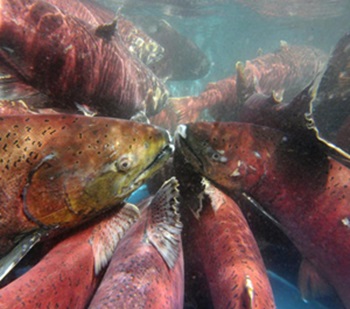 Canada and the United States are suspending all fishing for Canadian-origin Yukon River chinook salmon for seven years in an attempt to protect the dwindling species. The agreement covers the length of one life cycle of the fish and recognizes that the “persistent decline of chinook salmon” has led to an inability to meet conservation objectives in both countries. more, >>CLICK TO READ<< – Canada and Alaska sign a historic agreement to protect Yukon River Chinook salmon, To ensure the protection and recovery of Yukon River Chinook salmon, Fisheries and Oceans Canada and the Alaska Department of Fish and Game have signed a historic seven-year agreement. more, >>Click to read<< 10:33
Canada and the United States are suspending all fishing for Canadian-origin Yukon River chinook salmon for seven years in an attempt to protect the dwindling species. The agreement covers the length of one life cycle of the fish and recognizes that the “persistent decline of chinook salmon” has led to an inability to meet conservation objectives in both countries. more, >>CLICK TO READ<< – Canada and Alaska sign a historic agreement to protect Yukon River Chinook salmon, To ensure the protection and recovery of Yukon River Chinook salmon, Fisheries and Oceans Canada and the Alaska Department of Fish and Game have signed a historic seven-year agreement. more, >>Click to read<< 10:33
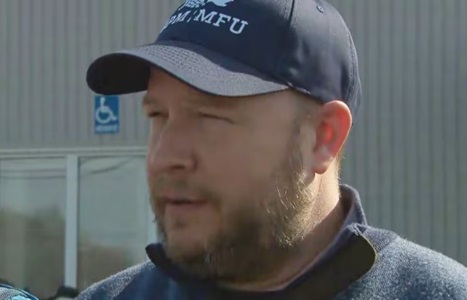
N.B. lobster fishermen defy DFO, leave traps in despite closure for North Atlantic right whales
Several fishing zones in the area were officially shut down early by the Department of Fisheries and Oceans at 5 p.m. Wednesday because of a North Atlantic right whale sighting. But at a meeting in Lamèque at the time of the deadline, about 200 members of the Maritime Fishermen’s Union decided not to remove their roughly 60,000 traps in the area. However, the fishermen say they will not go out Thursday in order to give the federal agency one more chance to negotiate. On Wednesday, a release from DFO said that the fishing zone closures, initially scheduled to last 10 days, would stay closed for the rest of the season. more, >>CLICK TO READ<< 06:56
Technology Helping Prevent Whale Strikes
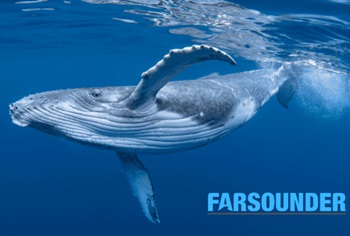 As many as 80 whales are estimated to die each year off the West Coast of the US as a result of ship strikes, and about a third of all Right Whale deaths in the Atlantic are attributed to ship strikes. Sperm Whales in the Mediterranean are also listed as an endangered species, and ship strike is their leading cause of death. Whale avoidance is clearly top of mind for mariners. It is time to explore how currently available technology can help in this endeavor. As the world looks to new technologies to assist in whale avoidance, it is important to ensure there is no impact on the whales and the environment. Likewise, as governmental regulations evolve, operating vessels near whales requires a strong understanding of the rules implemented to protect them. There should be strict adherence to safe practices that coincide with the use of the right technologies. more, >>CLICK TO READ<< 10:42
As many as 80 whales are estimated to die each year off the West Coast of the US as a result of ship strikes, and about a third of all Right Whale deaths in the Atlantic are attributed to ship strikes. Sperm Whales in the Mediterranean are also listed as an endangered species, and ship strike is their leading cause of death. Whale avoidance is clearly top of mind for mariners. It is time to explore how currently available technology can help in this endeavor. As the world looks to new technologies to assist in whale avoidance, it is important to ensure there is no impact on the whales and the environment. Likewise, as governmental regulations evolve, operating vessels near whales requires a strong understanding of the rules implemented to protect them. There should be strict adherence to safe practices that coincide with the use of the right technologies. more, >>CLICK TO READ<< 10:42
N.S. government spends $350,000 in funding on first of its kind simulator for NSCC
 The Nova Scotia government is funding a new fisheries simulator for the NSCC Shelburne Campus which will allow students to practise operating fishing vessels while on land. The simulator features navigation systems for both fishing and aquaculture, making it the first of its kind in Canada. The grant comes from the province’s Department of Advanced Education, which is spending $350,000 on the project. The province says they hope the project will help bring more participation to operations and careers involving fishing vessels, as well as help the fishing sector by bringing in a more highly skilled and experienced workforce. more, >>CLICK TO READ<< 09:23
The Nova Scotia government is funding a new fisheries simulator for the NSCC Shelburne Campus which will allow students to practise operating fishing vessels while on land. The simulator features navigation systems for both fishing and aquaculture, making it the first of its kind in Canada. The grant comes from the province’s Department of Advanced Education, which is spending $350,000 on the project. The province says they hope the project will help bring more participation to operations and careers involving fishing vessels, as well as help the fishing sector by bringing in a more highly skilled and experienced workforce. more, >>CLICK TO READ<< 09:23

Nova Scotia’s Billion-Dollar Lobster Wars
At the River Café, the Michelin-recommended restaurant on the Brooklyn waterfront where the term “free-range chicken” was coined, the lobster is served butter-poached next to a pool of lemon-grape sauce, to brighten its tender brininess. The chef, Brad Steelman, insists on lobster from the cold waters of Nova Scotia, because this insures a hard shell and robust meat. Not so long ago, good lobster could be found closer to the city. Historically, there were strong harvests as far south as New Jersey. Private-equity firms and seafood conglomerates have swallowed many of North America’s fisheries. But, in Nova Scotia, most lobstermen are independent. But many inshore fishermen have also resisted a recent entrant to the power struggle: the Mi’kmaq, the most populous group of Indigenous people in Atlantic Canada. more, >>CLICK TO READ<< 06:58
Acadie-Bathurst MP Serge Cormier says he can no longer defend his government on right whale protection issue
 A northeast New Brunswick Liberal MP is joining the Maritime Fishermen’s Union in calling for a better balance between protecting endangered North Atlantic right whales and allowing commercial fishing operations. Acadie-Bathurst MP Serge Cormier criticized his government for extensive closures of fishing zones that he warned could result in “disastrous consequences” and economic losses of $25 to 30 million. “While we are trying to save an endangered species, these extreme measures are actually endangering our fishing industry and coastal communities,” Cormier said in a statement released Thursday. “I can no longer defend my government on this issue. I stand with the fishermen, the lobster and crab industry, the factory owners and workers, and the community members.” more, >>CLICK TO READ<< 13:14
A northeast New Brunswick Liberal MP is joining the Maritime Fishermen’s Union in calling for a better balance between protecting endangered North Atlantic right whales and allowing commercial fishing operations. Acadie-Bathurst MP Serge Cormier criticized his government for extensive closures of fishing zones that he warned could result in “disastrous consequences” and economic losses of $25 to 30 million. “While we are trying to save an endangered species, these extreme measures are actually endangering our fishing industry and coastal communities,” Cormier said in a statement released Thursday. “I can no longer defend my government on this issue. I stand with the fishermen, the lobster and crab industry, the factory owners and workers, and the community members.” more, >>CLICK TO READ<< 13:14
Ropeless gear program will keep P.E.I. snow crab harvester on water despite whale sightings
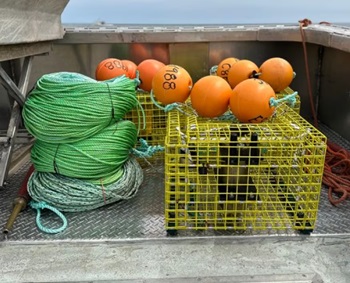 Alden Gaudet fishes snow crab out of Tignish Run and is close to reaching his quota for the season. The first sighting of a right whale in Canadian waters in 2024 came last Friday. A whale that has been dubbed Shelagh was seen northeast of New Brunswick and northwest of the Magdalen Islands. After that led to a partial closure of fishing grounds near his traps, Gaudet reached out to CanFish, a free gear-lending program based in Halifax that’s operated by the Canadian Wildlife Federation. Photos, more, >>CLICK TO READ<< 17:36
Alden Gaudet fishes snow crab out of Tignish Run and is close to reaching his quota for the season. The first sighting of a right whale in Canadian waters in 2024 came last Friday. A whale that has been dubbed Shelagh was seen northeast of New Brunswick and northwest of the Magdalen Islands. After that led to a partial closure of fishing grounds near his traps, Gaudet reached out to CanFish, a free gear-lending program based in Halifax that’s operated by the Canadian Wildlife Federation. Photos, more, >>CLICK TO READ<< 17:36
RCMP Officers find 1.5kg of elvers while arresting man passed out behind the wheel of his truck
 An Indian Brook, N.S. man is facing charges after police say he was found impaired by drugs behind the wheel of a car in Concession, N.S., Thursday morning. According to an RCMP news release, officers and emergency responders found the man unconscious in a black Dodge Ram around 6:48 a.m. According to police, he drifted in and out of consciousness and allegedly showed signs of impairment. The man was arrested and taken to the Yarmouth RCMP Detachment, where police say he failed a sobriety test. more, >>CLICK TO READ<< 07:10
An Indian Brook, N.S. man is facing charges after police say he was found impaired by drugs behind the wheel of a car in Concession, N.S., Thursday morning. According to an RCMP news release, officers and emergency responders found the man unconscious in a black Dodge Ram around 6:48 a.m. According to police, he drifted in and out of consciousness and allegedly showed signs of impairment. The man was arrested and taken to the Yarmouth RCMP Detachment, where police say he failed a sobriety test. more, >>CLICK TO READ<< 07:10
Unsealed federal lawsuit alleges Omega Protein skirted U.S. citizen ownership requirement
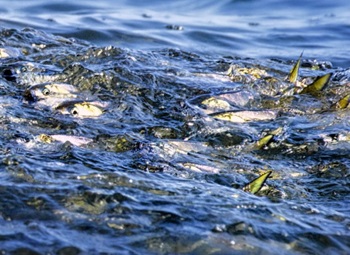 A recently unsealed federal lawsuit alleges that the lone menhaden reduction fishery in the Chesapeake Bay broke federal law by creating a shell company to cover-up its foreign ownership, routing profits to a Canadian company instead of keeping them in Virginia. Benson Chiles and Chris Manthey, two private investigators involved in environmental conservation efforts, brought forward the lawsuit in the U.S. District Court for the Southern District of New York in 2021 against Omega Protein under the False Claims Act, saying the company violated the Jones Act and American Fisheries Act by not disclosing that its owners are family. Ocean Harvesters, the subsidiary more specifically accused of wrongdoing, said in a statement the lawsuit is “without merit” and will be “vigorously” defended. more, >>CLICK TO READ<< 06:48
A recently unsealed federal lawsuit alleges that the lone menhaden reduction fishery in the Chesapeake Bay broke federal law by creating a shell company to cover-up its foreign ownership, routing profits to a Canadian company instead of keeping them in Virginia. Benson Chiles and Chris Manthey, two private investigators involved in environmental conservation efforts, brought forward the lawsuit in the U.S. District Court for the Southern District of New York in 2021 against Omega Protein under the False Claims Act, saying the company violated the Jones Act and American Fisheries Act by not disclosing that its owners are family. Ocean Harvesters, the subsidiary more specifically accused of wrongdoing, said in a statement the lawsuit is “without merit” and will be “vigorously” defended. more, >>CLICK TO READ<< 06:48
Conne River salmon on the road to extinction, says DFO study, with aquaculture a leading factor
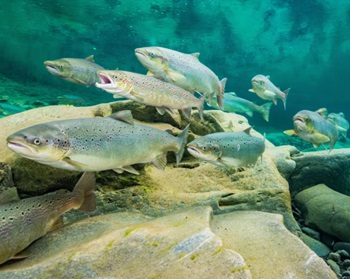 A new comprehensive review of Atlantic salmon in Conne River, on Newfoundland’s south coast, says aquaculture operations are the biggest reason for the population decline — and if things don’t change, the fish could be wiped out. Travis Van Leeuwen, a Department of Fisheries and Oceans research scientist and co-author of the report, released in April, says the river had at least 10,000 large and small salmon, but since 2020 fewer than 300 adult salmon return to Conne River every year. Marine cage culture salmonids started in the mid-1980s at Bay d’Espoir and later expanded east into Fortune Bay. In 1992, Newfoundland and Labrador’s commercial salmon fishery ended. But while the salmon population in rivers in other areas of the province bounced back, Conne River’s continued to decline. more, >>CLICK TO READ<< 16:49
A new comprehensive review of Atlantic salmon in Conne River, on Newfoundland’s south coast, says aquaculture operations are the biggest reason for the population decline — and if things don’t change, the fish could be wiped out. Travis Van Leeuwen, a Department of Fisheries and Oceans research scientist and co-author of the report, released in April, says the river had at least 10,000 large and small salmon, but since 2020 fewer than 300 adult salmon return to Conne River every year. Marine cage culture salmonids started in the mid-1980s at Bay d’Espoir and later expanded east into Fortune Bay. In 1992, Newfoundland and Labrador’s commercial salmon fishery ended. But while the salmon population in rivers in other areas of the province bounced back, Conne River’s continued to decline. more, >>CLICK TO READ<< 16:49
Indigenous harvesters call for independent review of Nunatsiavut government shrimp allocations; conflict of interest questions raised
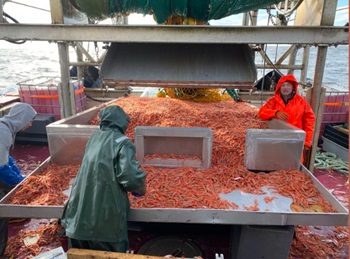 A group of seven indigenous inshore harvesters from northern Labrador say the Nunatsiavut government has denied them a 2024 share of northern shrimp quota in favour of a factory-freezer trawler and are calling for an independent investigation. “This is an injustice that goes against the spirit of our communal licence to preserve the culture and economy of the North Coast,” says Lisa Blandford, an Indigenous harvester on behalf the group. In past years the Nunatsiavut government has distributed its annual federal allocation of shrimp off northern Labrador to more than 20 inshore harvesters or “designates.” This year, however, Blandford said seven inshore designates have been told they will not be awarded northern shrimp. more, >>CLICK TO READ<< 10:24
A group of seven indigenous inshore harvesters from northern Labrador say the Nunatsiavut government has denied them a 2024 share of northern shrimp quota in favour of a factory-freezer trawler and are calling for an independent investigation. “This is an injustice that goes against the spirit of our communal licence to preserve the culture and economy of the North Coast,” says Lisa Blandford, an Indigenous harvester on behalf the group. In past years the Nunatsiavut government has distributed its annual federal allocation of shrimp off northern Labrador to more than 20 inshore harvesters or “designates.” This year, however, Blandford said seven inshore designates have been told they will not be awarded northern shrimp. more, >>CLICK TO READ<< 10:24Lennox Island First Nation hoping for more access to lobster fishery
 The Lennox Island First Nation wharf is busy these days, in the band’s third year of treaty fishing for lobster, but Chief Darlene Bernard would like to see it busier. Though there has been a commercial fishery based in the community off P.E.I’s North Shore for decades, Bernard said the newly exercised right to harvest lobster under treaties signed long ago means about 10 young families are better able to pay their bills. With a waiting list of about the same number of people who would like to take part in the fishery, Bernard wants to see more commercial licences made available for Lennox Island through a Department of Fisheries and Oceans (DFO) purchase program. “We need to have an equitable share of the bounty of the resources in this province moving forward,” she said. Video, photos, more, >>CLICK TO READ<< 13:20
The Lennox Island First Nation wharf is busy these days, in the band’s third year of treaty fishing for lobster, but Chief Darlene Bernard would like to see it busier. Though there has been a commercial fishery based in the community off P.E.I’s North Shore for decades, Bernard said the newly exercised right to harvest lobster under treaties signed long ago means about 10 young families are better able to pay their bills. With a waiting list of about the same number of people who would like to take part in the fishery, Bernard wants to see more commercial licences made available for Lennox Island through a Department of Fisheries and Oceans (DFO) purchase program. “We need to have an equitable share of the bounty of the resources in this province moving forward,” she said. Video, photos, more, >>CLICK TO READ<< 13:20
Entangled North Atlantic right whale prompts fishing closure in Gulf of St. Lawrence
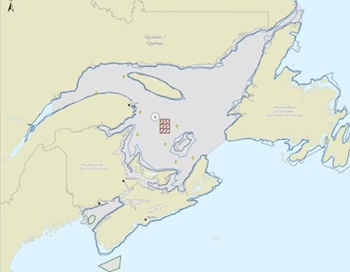 Fisheries and Oceans Canada has temporarily shut down part of the Gulf of St. Lawrence to non-tended, fixed-gear fishing after an endangered North Atlantic right whale with gear entangled around its mouth was spotted northeast of New Brunswick Friday. The whale was seen northeast of the Acadian Peninsula and northwest of Quebec’s Magdalen Islands during routine aerial surveillance and was many nautical miles from land, Fisheries and Oceans Canada said in a news release Monday. It’s the first sighting of a North Atlantic right whale in Canadian waters this season, according to the release. more, >>CLICK TO READ<< 06: 56
Fisheries and Oceans Canada has temporarily shut down part of the Gulf of St. Lawrence to non-tended, fixed-gear fishing after an endangered North Atlantic right whale with gear entangled around its mouth was spotted northeast of New Brunswick Friday. The whale was seen northeast of the Acadian Peninsula and northwest of Quebec’s Magdalen Islands during routine aerial surveillance and was many nautical miles from land, Fisheries and Oceans Canada said in a news release Monday. It’s the first sighting of a North Atlantic right whale in Canadian waters this season, according to the release. more, >>CLICK TO READ<< 06: 56
With crab season underway, potential job action looms for fish plant workers without a contract
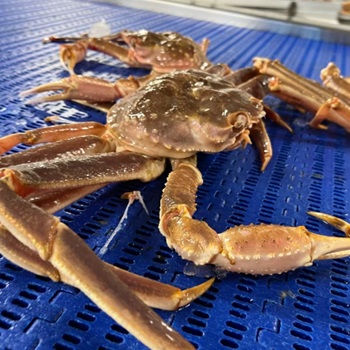 Crab is coming into processing plants in eastern Newfoundland, but the lack of a contract for unionized workers could throw a wrench in the season. Joey Warford, the industrial-retail-offshore council member representative for the Fish, Food & Allied Workers union, said plant workers have been without a deal since December. “We’re hoping to get a deal done but, you know, that remains to be seen. The members are speaking loud and clear on their needs and their wants,” Warford — who said he represents about 1,000 plant workers in without a deal in Witless Bay, Bonavista, Triton and New Wes Valley, more, >CLICK TO READ<< 19:25
Crab is coming into processing plants in eastern Newfoundland, but the lack of a contract for unionized workers could throw a wrench in the season. Joey Warford, the industrial-retail-offshore council member representative for the Fish, Food & Allied Workers union, said plant workers have been without a deal since December. “We’re hoping to get a deal done but, you know, that remains to be seen. The members are speaking loud and clear on their needs and their wants,” Warford — who said he represents about 1,000 plant workers in without a deal in Witless Bay, Bonavista, Triton and New Wes Valley, more, >CLICK TO READ<< 19:25
‘They were lucky’: 5 crew rescued from sinking mussel boat in Malpeque Harbour
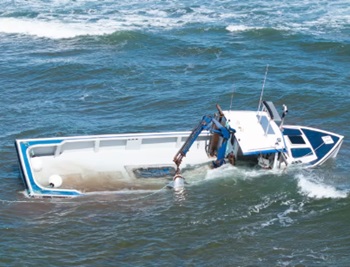 The 45-foot vessel ran aground on a sandbar and started taking on water in rough seas just after 8 a.m. Monday, said Timothy Wall, a fisherman from the area. The New London Fire Company told CBC News there were five people aboard at the time. Wall said the boat was trying to bring a load of mussels in when it struck the sandbar. “When the boat went aground, everybody just kind of climbed on the side, then they had to climb on the roof,” he said. “It’s dangerous — it’s rocky and it’s windy and it’s cold.” “[The crew members] were lucky, but they did everything right. They put their life jackets on, they got up high on the vessel, they radioed out for help, the other boats came [and] we came along. The system works.” Video’s, photos. more, >>CLICK TO READ<< 12:14
The 45-foot vessel ran aground on a sandbar and started taking on water in rough seas just after 8 a.m. Monday, said Timothy Wall, a fisherman from the area. The New London Fire Company told CBC News there were five people aboard at the time. Wall said the boat was trying to bring a load of mussels in when it struck the sandbar. “When the boat went aground, everybody just kind of climbed on the side, then they had to climb on the roof,” he said. “It’s dangerous — it’s rocky and it’s windy and it’s cold.” “[The crew members] were lucky, but they did everything right. They put their life jackets on, they got up high on the vessel, they radioed out for help, the other boats came [and] we came along. The system works.” Video’s, photos. more, >>CLICK TO READ<< 12:14
MPA’s: DFO seeks to reassure fishermen after ‘scary’ map released of potential protected areas
 A member of the Fisheries Department’s marine planning group was publicly challenged in Nova Scotia this week to guarantee marine protected areas will not harm the region’s inshore lobster fishery. Marty King appeared Thursday before Argyle municipal council in southwestern Nova Scotia where several areas are under consideration for protection. His appearance followed the release of DFO’s marine conservation network plan — a map with dozens of potential protected sites on the Atlantic coast of Nova Scotia and the Bay of Fundy. King repeatedly stressed coastal conservation areas would have no effect on the lobster fishery. “Hopefully we’re getting the message out more and more that an MPA [marine protected area] doesn’t mean no fishing,” he said. more, >>CLICK TO READ<< 08:49
A member of the Fisheries Department’s marine planning group was publicly challenged in Nova Scotia this week to guarantee marine protected areas will not harm the region’s inshore lobster fishery. Marty King appeared Thursday before Argyle municipal council in southwestern Nova Scotia where several areas are under consideration for protection. His appearance followed the release of DFO’s marine conservation network plan — a map with dozens of potential protected sites on the Atlantic coast of Nova Scotia and the Bay of Fundy. King repeatedly stressed coastal conservation areas would have no effect on the lobster fishery. “Hopefully we’re getting the message out more and more that an MPA [marine protected area] doesn’t mean no fishing,” he said. more, >>CLICK TO READ<< 08:49
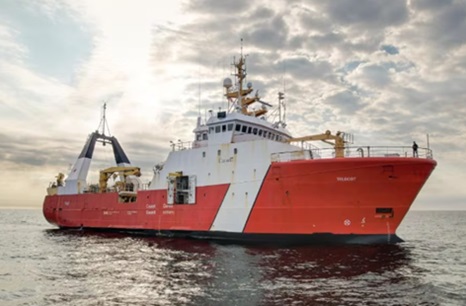
Waters off Scotian Shelf are cooling while scientists wonder if decade-long warming trend is over
In recent years, warming temperatures have grabbed headlines, with record highs being set throughout the region. Recently, on the Scotian shelf, it has moved in the other direction. “It is really interesting,” Beazley said in a wharfside interview at the Bedford Institute of Oceanography. “We did see a continuation of the trend that we observed in 2023, which was the temperatures are actually returning to normal or even below normal conditions in some areas. It’s getting cooler.” Since 2012, ocean temperatures off Nova Scotia at depth have been consistently warmer — by about two degrees above normal. more, >>CLICK TO READ<< 09:29
Staggered lobster starts don’t suit all fishers
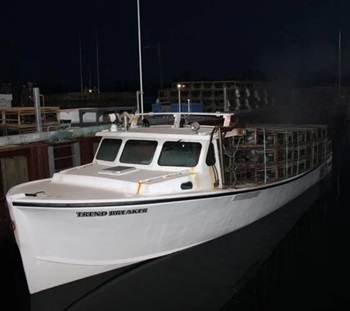 For the second straight year, PEI’s north and south side lobster zones had their setting days on different dates, but not everyone agrees with it. David Sansom, port manager at Red Head Harbour in Morell, said he isn’t a fan of not starting on the same day. However, he said data shows the offshore area Morell fishes, between Naufrage and Covehead harbours, has been one of the coldest on the Island in recent years, which affects lobster movement. Starting dates are influenced by many factors, including temperature on the bottom, weather and the tides. The north side had April 29 as their tentative starting date but several days of strong north winds delayed their season by almost a week until this past Sunday. Photos, more, >>CLICK TO READ<< 08:10
For the second straight year, PEI’s north and south side lobster zones had their setting days on different dates, but not everyone agrees with it. David Sansom, port manager at Red Head Harbour in Morell, said he isn’t a fan of not starting on the same day. However, he said data shows the offshore area Morell fishes, between Naufrage and Covehead harbours, has been one of the coldest on the Island in recent years, which affects lobster movement. Starting dates are influenced by many factors, including temperature on the bottom, weather and the tides. The north side had April 29 as their tentative starting date but several days of strong north winds delayed their season by almost a week until this past Sunday. Photos, more, >>CLICK TO READ<< 08:10
Herring stock struggles continue
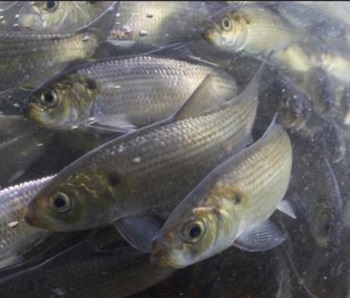 Herring stocks in the south of the Gulf of St. Lawrence continues to struggle as the federal moratorium on spring herring fishing passes the two-year mark. Herring in Atlantic Canada is split into two stocks, corresponding with the breeding cycles of the fish. While spring herring stocks protected by the moratorium continue to struggle, fall herring can be fished sustainably and are not under a moratorium. Herring is an ideal species for bait and is a favourite for crustacean fishers. With spring herring stocks under moratorium, fishers in Atlantic Canada are forced to turn to alternative fish stocks. Mark Prevost, one of three co-owners of the alternative bait company Bait Masters, feels strongly about sustainability and shared concerns with SaltWire about the future of other fish stocks taking the brunt of the herring stock closure. more, >>CLICK TO READ<< 12:23
Herring stocks in the south of the Gulf of St. Lawrence continues to struggle as the federal moratorium on spring herring fishing passes the two-year mark. Herring in Atlantic Canada is split into two stocks, corresponding with the breeding cycles of the fish. While spring herring stocks protected by the moratorium continue to struggle, fall herring can be fished sustainably and are not under a moratorium. Herring is an ideal species for bait and is a favourite for crustacean fishers. With spring herring stocks under moratorium, fishers in Atlantic Canada are forced to turn to alternative fish stocks. Mark Prevost, one of three co-owners of the alternative bait company Bait Masters, feels strongly about sustainability and shared concerns with SaltWire about the future of other fish stocks taking the brunt of the herring stock closure. more, >>CLICK TO READ<< 12:23
‘The lobster looks good,’ North Shore harvester says after first trap hauled
Fishing crews on P.E.I.’s North Shore landed their first catch of the season on Monday, six days later than planned. And so far so good, said Stephen Ramsay, who fishes out of North Rustico. “The lobster looks good,” he said. “Nice shiny stuff around, hard shell, looks good.”It’ll be a few more days, however, before he and other North Shore crews know what they’ll be paid for it. Ramsay said the prices he’s heard have been “all over the map” so far. Video, more, >>CLICK TO READ<< 19:28
‘There’s no lobster worth a life’: P.E.I. fishers reminded lifejackets are mandatory
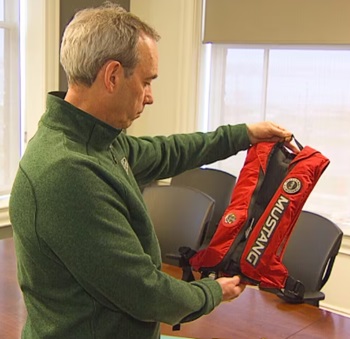 With many fishers beginning their season, occupational health and safety officials have been visiting harbours to reinforce the message around lifejackets. Regulations require their use. While some fishers might not have worn a life-jacket years ago, more people seem to be following the rules now, says Danny Miller, director of occupational health and safety with the Workers Compensation Board of P.E.I. “It’s a very positive change,” he said. “I hope fishers are doing the right thing and it’s not just because we’re watching. Hopefully they’re doing the right thing because it’s the right thing to do.” more, >>CLICK TO READ<< 06:46
With many fishers beginning their season, occupational health and safety officials have been visiting harbours to reinforce the message around lifejackets. Regulations require their use. While some fishers might not have worn a life-jacket years ago, more people seem to be following the rules now, says Danny Miller, director of occupational health and safety with the Workers Compensation Board of P.E.I. “It’s a very positive change,” he said. “I hope fishers are doing the right thing and it’s not just because we’re watching. Hopefully they’re doing the right thing because it’s the right thing to do.” more, >>CLICK TO READ<< 06:46
A personal-use mackerel fishery is coming, but P.E.I. fishers don’t know when
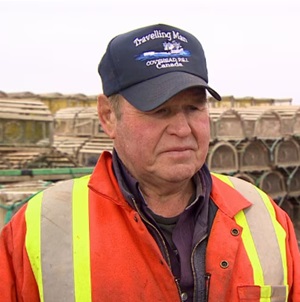 Lobster fishers on P.E.I. say they’re happy to hear that a personal-use mackerel fishery will open this year, but they’re not sure it will help them with bait during the spring season. “If we got a chance to go get some, we certainly will,” said Allan Cody, who fishes out of Covehead. Mackerel is often used as bait in the lobster, halibut and other fisheries. Cody currently buys bait from a supplier in Tignish but it comes from waters near Iceland, he said. They’re frozen and then shipped to Canada. But “the fresher the mackerel the better.” photos, more, >>CLICK TO READ<< 08:02
Lobster fishers on P.E.I. say they’re happy to hear that a personal-use mackerel fishery will open this year, but they’re not sure it will help them with bait during the spring season. “If we got a chance to go get some, we certainly will,” said Allan Cody, who fishes out of Covehead. Mackerel is often used as bait in the lobster, halibut and other fisheries. Cody currently buys bait from a supplier in Tignish but it comes from waters near Iceland, he said. They’re frozen and then shipped to Canada. But “the fresher the mackerel the better.” photos, more, >>CLICK TO READ<< 08:02
Midcoast man again charged with violating Maine’s baby eel fishing laws
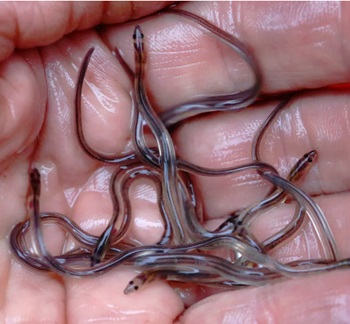 A Waldoboro man who nine years ago was convicted of tax evasion and underreporting hundreds of thousands of dollars in eel fishing income has been charged again with violating Maine’s elver fishing laws. Paul J. Griffin Jr., 52, has been charged with selling juvenile eels, also known as elvers or glass eels, for cash, which is a violation of laws implemented in 2013. Despite the recent charges against Griffin and a handful of others, Maine has had a relatively low number of similar violations for the past decade. It’s been a different story across the border in New Brunswick and Nova Scotia, where an alleged spree of elver poaching prompted Canada to shut down the fishery this spring. more, >>CLICK TO READ<< 09:46
A Waldoboro man who nine years ago was convicted of tax evasion and underreporting hundreds of thousands of dollars in eel fishing income has been charged again with violating Maine’s elver fishing laws. Paul J. Griffin Jr., 52, has been charged with selling juvenile eels, also known as elvers or glass eels, for cash, which is a violation of laws implemented in 2013. Despite the recent charges against Griffin and a handful of others, Maine has had a relatively low number of similar violations for the past decade. It’s been a different story across the border in New Brunswick and Nova Scotia, where an alleged spree of elver poaching prompted Canada to shut down the fishery this spring. more, >>CLICK TO READ<< 09:46
What Canada can learn from Maine’s approach to the lucrative baby eel fishery
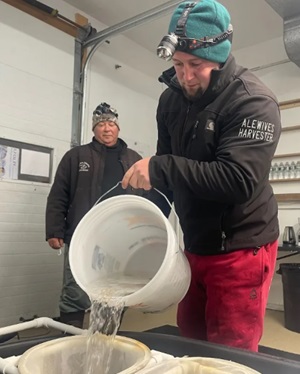 Authorities in Maine say they have figured out how to regulate a fishery that is so out of control in Canada, the federal government has shut it down this year — the third shutdown in five years — putting 1,100 people out of work. Baby eels, also known as elvers or glass eels, are generally fished in rivers and streams in Maine, Nova Scotia, New Brunswick and a handful of Caribbean islands. They’re shipped live to Asia, where they’re grown to maturity and eaten — the dish is so popular it led to overfishing in Japan and Europe, leaving seafood wholesalers looking to Canada. Photos, more, >>CLICK TO READ<< 10:07
Authorities in Maine say they have figured out how to regulate a fishery that is so out of control in Canada, the federal government has shut it down this year — the third shutdown in five years — putting 1,100 people out of work. Baby eels, also known as elvers or glass eels, are generally fished in rivers and streams in Maine, Nova Scotia, New Brunswick and a handful of Caribbean islands. They’re shipped live to Asia, where they’re grown to maturity and eaten — the dish is so popular it led to overfishing in Japan and Europe, leaving seafood wholesalers looking to Canada. Photos, more, >>CLICK TO READ<< 10:07






